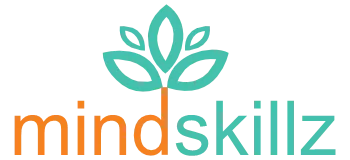In fast-paced organizations, leadership coaching for managers provides targeted, one-on-one development that accelerates managerial effectiveness, strategic thinking, and team performance. Unlike group training, coaching delivers personalized feedback, accountability, and goal setting tailored to each manager’s strengths and challenges. Coaches guide managers through real workplace scenarios—conflict resolution, stakeholder communication, performance management—ensuring lasting behavior change and measurable business impact.
Introduction: Defining Leadership Coaching for Managers
Leadership coaching for managers is a collaborative partnership between a coach and an individual manager focused on unlocking that manager’s potential to lead more effectively. Coaching engagements typically last 3–12 months, involve regular sessions, and center on achieving specific leadership goals such as improving emotional intelligence, delegation skills, strategic planning, and team motivation.
Step-by-Step How-To Guide
Needs Assessment
Conduct 360-degree feedback and self-assessment.
Identify key development areas aligned with organizational goals.
Define Coaching Objectives
Establish SMART goals (e.g., “Improve team engagement by 20% in six months”).
Agree on metrics and success criteria.
Select Coach
Choose experienced coaches with leadership and industry expertise.
Ensure compatibility in style, values, and confidentiality.
Develop Coaching Plan
Outline session frequency, duration, and format (in-person or virtual).
Design action learning projects and milestones between sessions.
Engage in Coaching Sessions
Use active listening, powerful questions, and feedback.
Apply real-time problem solving with coach guidance.
Implement Action Steps
Practice new behaviors (e.g., delegation frameworks, strategic dialogues) at work.
Gather data and feedback to discuss in next session.
Measure Progress
Track metrics such as team performance, engagement surveys, and 360 feedback.
Adjust coaching plan based on results and emerging challenges.
Sustain Growth
Establish peer-coaching groups for ongoing support.
Schedule periodic follow-up sessions to reinforce development.
Pros and Cons
Pros
Personalized development targeting specific managerial needs
Accelerated leadership skill acquisition and behavior change
Confidential environment encourages candid self-reflection
Action-oriented approach with measurable results
Builds accountability and continuous learning mindset
Cons
Higher cost per participant than group training
Requires manager commitment and time investment
Success depends heavily on coach–manager relationship quality
May be challenging to scale across large manager populations
Comparison with Alternatives
| Approach | Coaching | Group Workshops | Online Courses |
|---|---|---|---|
| Personalization | High—tailored to individual needs | Low—standardized content | Low—generic content |
| Cost per Manager | High | Medium | Low |
| Scalability | Low | High | Very High |
| Behavior Change | High—ongoing support | Medium—limited follow-up | Low—no accountability |
| Time Investment | Medium—regular sessions | Low—one-off sessions | Low—self-paced |
Frequently Asked Questions
Q1: How long does leadership coaching engagement last?
Typical engagements run 6–12 months, with bi-weekly or monthly sessions depending on goals and availability.
Q2: What are measurable outcomes of coaching?
Organizations measure improvements in team engagement surveys, leadership effectiveness ratings, goal attainment, and business KPIs aligned with coaching objectives.
Q3: How is a good coach selected?
Look for coaches with senior leadership experience, relevant industry background, coaching certifications (e.g., ICF), and strong references.
Q4: Can internal HR professionals coach managers?
Internal coaches can be effective if trained and certified but may face trust and confidentiality challenges compared to external coaches.
Q5: What is the ROI of leadership coaching?
Studies show average ROI ranges from 200% to 700%, driven by improved performance, retention, and reduced leadership gaps.
Q6: How do managers prepare for coaching?
Complete pre-coaching assessments, gather feedback, define clear goals, and commit time to action plan execution.
Q7: Can coaching be virtual?
Yes—virtual platforms with video conferencing, digital journals, and action tracking tools enable effective remote coaching.
Q8: Who sponsors coaching in organizations?
Typically HR or senior executives sponsor coaching for high-potential managers or those in critical leadership roles.
Expert Quotes and Testimonials
“Coaching transforms managers into authentic leaders who inspire and drive results. The personalized focus accelerates growth.” – Dr. Marshall Goldsmith, Executive Coach
“Our coaching program boosted team engagement by 28% within six months, directly impacting our bottom line.” – Priya Krishnamurthy, CHRO, Global IT Firm
“Virtual coaching allowed our geographically dispersed managers to develop leadership skills without travel disruptions.” – Rajesh Mehta, Talent Development Lead, Financial Services
Real Examples and Case Studies
Case Study 1: A telecom company engaged 50 mid-level managers in 8-month coaching. Results: 30% increase in team productivity, 22% improvement in engagement scores, and 15% reduction in manager turnover.
Case Study 2: A manufacturing firm coached plant supervisors on safety leadership. Outcome: 40% reduction in safety incidents and 18% improvement in safety culture survey results within 1 year.
Case Study 3: A professional services firm provided coaching to senior consultants on stakeholder communication. Impact: 25% higher client satisfaction ratings and 20% increase in proposal win rates.
Key Takeaways Summary
Leadership coaching for managers provides personalized, actionable development with high impact on performance and engagement.
Structured coaching processes—assessment, goal setting, action learning, and measurement—drive sustained behavior change.
Coaching yields superior ROI compared to group training and online courses, despite higher per-participant cost.
Virtual coaching enables scalable, flexible delivery for global manager populations.
Selecting experienced, certified coaches and establishing clear goals are critical for success.
Combining coaching with peer support and follow-up sessions ensures long-term leadership growth.
For transformative leadership coaching that propels managerial excellence and business performance, visit MindSkillz.in and discover tailored coaching solutions designed to empower your managers and strengthen your leadership pipeline.
